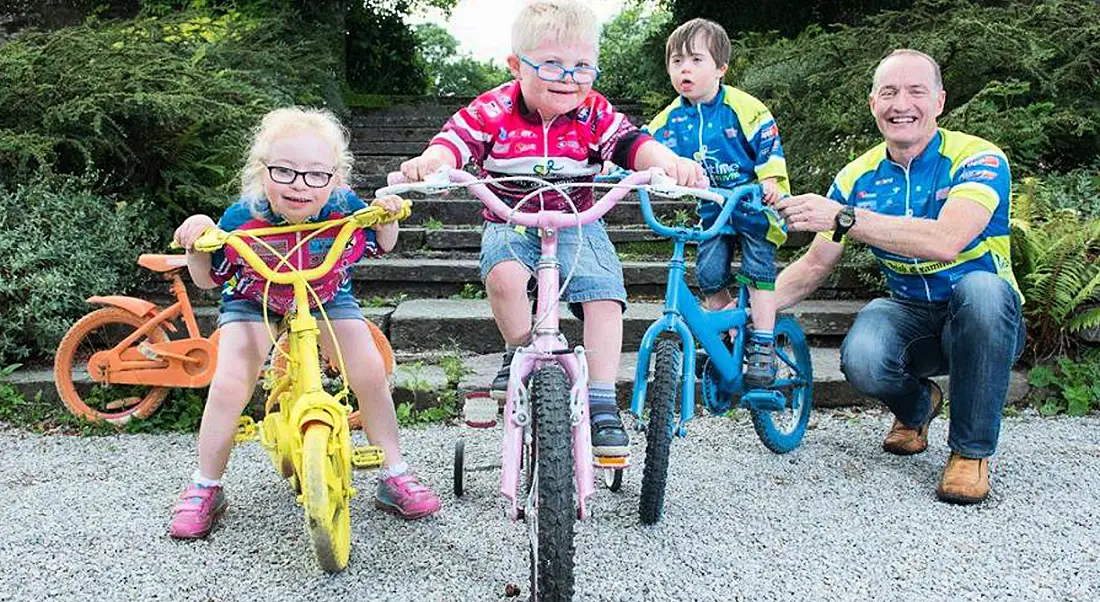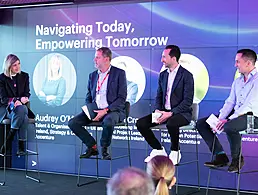We all have hobbies – the little things that get us through the week. But how many of us have turned those hobbies into charity events that rake in hundreds of thousands of euro per year?
Paul Sheridan is the founder and organiser of the Tour de Munster, an annual charity cycle now entering its 16th year.
Sheridan started the Tour de Munster back in 2001. He found cycling to be a very sociable and relaxing pastime and, inspired by actor Paul Newman’s famed philanthropy, decided to make something of it.
“I want to acknowledge luck,” said Newman. “The benevolence of it in my life, and the brutality of it in the lives of others.”
This quote is something that Sheridan has kept close to his heart over the years, even participating in a cross-US cycle to fundraise for Newman’s Hole in the Wall Gang during the nineties.
The Tour de Munster itself has always been a charitable endeavour, giving to a range of different charities during the early years. Since 2010, though, all the money raised has gone to Down Syndrome Ireland (DSI) Munster branches.
And, with a peloton that’s grown from 20 to 120 cyclists since 2001, the Tour’s annual contribution to DSI is considerable.
The funds raised go towards – among other things – training for those with Down Syndrome, covering everything from dance classes to bakery lessons, and supporting programmes in adult literacy.
Even beyond that, there’s the added PR value that the Tour brings to the charities it supports (exclusively Down Syndrome Ireland, for now).
“Last year’s Tour had an estimated PR value – according to the experts – of about €500,000,” said Sheridan. “We had a total reach in printed media of almost 2m, last year, and we featured on Nationwide. For the first time ever, Nationwide featured a charity event.”
And that PR value can be hugely important to a charity like DSI, according to Sheridan.
“It would be far better if we lived in a society where the state took care of the needs of everybody, and provided ability-appropriate education and condition-appropriate healthcare. That’s not the case here,” he said.
In the absence of that level of State supports, advocates have to be more vocal than their competition – for want of a better word – and out-shout other charities to get the support they need.
The involvement of Sean Kelly – perhaps Ireland’s most noted professional cyclist – probably goes a long way towards raising the Tour’s and DSI’s profile, and contributes a great deal to that PR value. Kelly gets people out on the streets.
“I don’t think you would ever meet such an unassuming person of such high calibre,” said Sheridan. “If you were to cycle beside him, you wouldn’t know the difference between him and anybody else, and yet he has such a huge palmarès [the list of races a cyclist has won].”
The route, the cruelty, the sense of achievement
The Tour de Munster is a 600km cycle, bringing the peloton from Waterford to Cork through all six of the southern province’s counties.
“Initially, we did four 80-mile stages throughout the province, and I guess at the end of the first one I came to the conclusion that it really wasn’t challenging enough for cyclists and didn’t afford them enough views of the scenery. So, on the second edition, we threw in the Conor Pass and Moll’s Gap and a few other major climbs throughout Munster.”
To add insult to injury – or sense of achievement to challenge, as the case may be – the route finishes at Patrick’s Hill in Cork. Going up.
“Some people have described it as being cruel to do it… And I can tell you, if I had known those 400m could mean so much, then I’m not sure that I’d have ever bothered with the 400 miles.
“It’s just remarkable. You see people become complete and utter blubbering messes when they cross that line.”
And yet the cyclists keep coming back. Maybe just to challenge themselves, but also – just maybe – because they know what they’re doing is worthwhile.
“All of this dance training and occupational therapy is good for [the children with Down Syndrome’s] self-esteem, and it also gives us a great awareness of where it is our money is going,” said Sheridan.
Sean Kelly (left) and Paul Sheridan, with friends. Photo via Paul Sheridan
The hard slog
Of course, nothing is ever smooth sailing, and life can’t always be sunshine and roses. A lot goes on behind the scenes to get the Tour organised, to get cyclists signed up and to get the charities in line. The vast bulk of that falls on Sheridan’s shoulders.
“It’s a year-round occupation,” he said. “I organise all the participants, I accept all the applications, and then I organise the training. I organise the accommodation for the four days. I interface with the jersey sponsors. I interface with the jersey designers, the sponsorship card designers, the charity, the whole shebang.”
‘I like to think I’m more motivated because they’re so inspiring in what they do and what they allow me to do’
– PAUL SHERIDAN, U-BLOX
But, in the midst of all this, Sheridan does have a day job.
A senior layout engineer designing transceiver layouts at internet of things (IoT) chip-maker U-blox, he is effusive in his praise of the company’s support, starting with how heavily it has thrown its weight behind the Tour.
“I’m given time to organise the Tour, and my boss and the company tolerate me taking calls about it. They’ve never made my life difficult, and there’s never been an ultimatum,” said Sheridan.
When he started at the company, Sheridan met Andreas Thiel, one of the co-founders. Thiel decided, almost immediately after hearing about the Tour, that U-blox would become jersey sponsors. Thiel and other U-blox employees also take part in the Tour itself, as cyclists and as medics.
Beyond that, Sheridan is wowed by how seriously U-blox takes its corporate social responsibility charter, sponsoring sporting events and contributing massively in developing countries.
All of this helps Sheridan as an employee. “I like to think I’m more motivated because they’re so inspiring in what they do and what they allow me to do. I feel more than slightly obliged to give them their good value for money and a decent return.”
The work he does on the Tour and the work he does at U-blox may sound vastly different, but there are more connections than you’d think. Both require a great deal of organisation, streamlining and efficiency.
The Tour, for instance, is not without its challenges, and one of the things that’s a constant struggle is keeping participants motivated and involved.
The raison d’être
Beyond the basic knowledge that what they’re doing has a real and lasting effect on another person’s life, being able to build a personalised relationship for every participant can be a big help, allowing them to feel a sense of ownership over the work they’re doing.
A big part of this is the Adopt-a-Cyclist programme that the charity operates, whereby participants’ names and addresses (with their express permission) are given to DSI branch members, who can write to the cyclists and share their stories.
Those interactions are meant to give the cyclists a reason to keep going. If they don’t, hearing about a young girl called Aoife – someone who has made a lasting impression on Sheridan – almost certainly will.
Aoife’s mother was the first person to ‘adopt’ Sheridan. She told him that her daughter had been diagnosed as non-verbal and it was thought that she would never, ever speak.
When she and Sheridan met again five years later, Aoife said, ‘Hi’.
It was thanks to her learning Lámh, a special type of sign language used by the Down Syndrome community and, in part, supported by the Tour. Learning Lámh inspired Aoife to strive to communicate more and more. It really makes a difference.
Stories like this are one thing, but the nitty-gritty fundraising element of the event is always going to be the bread and butter, and the driving force.
“I hope that the programmes that Down Syndrome Ireland run can continue, but they can only continue if people like myself continue to help with their fundraising,” said Sheridan.
For him, it’s all about using your life to be a force for good. Don’t leave him on his own in this. Get on yer bikes.
The Tour de Munster will be starting in Waterford on Thursday 4 August and coming to a close on Patrick’s Hill, Cork city, on Sunday 7 August.
Looking for jobs in tech or science? Check out our Employer Profiles for information on companies hiring right now.




